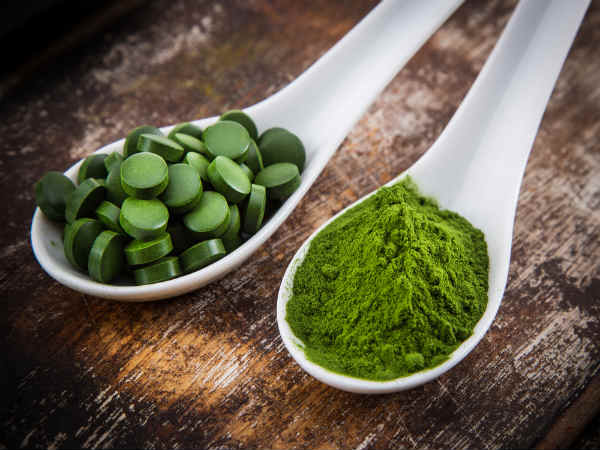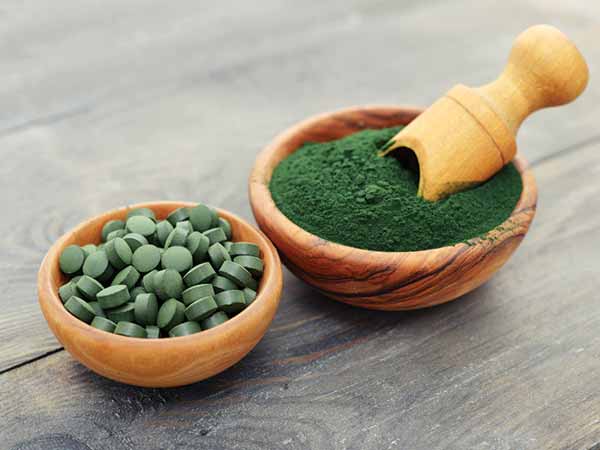Just In
- 48 min ago

- 4 hrs ago

- 8 hrs ago

- 9 hrs ago

Don't Miss
- Movies
 Entertainment LIVE Updates: Adil Hussain Reacts To Sandeep Reddy Vanga's Tweet;
Entertainment LIVE Updates: Adil Hussain Reacts To Sandeep Reddy Vanga's Tweet; - News
 Crowd Goes Crazy As Ajith Turns Up At Polling Booth To Vote
Crowd Goes Crazy As Ajith Turns Up At Polling Booth To Vote - Finance
 Rs 5/Share Dividend: Record Date In Due Course; Buy The Capital Goods Stock?
Rs 5/Share Dividend: Record Date In Due Course; Buy The Capital Goods Stock? - Automobiles
 Maruti Suzuki Swift Sees Price Hike Across Variants: New Model Launch In May 2024
Maruti Suzuki Swift Sees Price Hike Across Variants: New Model Launch In May 2024 - Sports
 LSG vs CSK IPL 2024: Who will Pick Maximum Wickets in Lucknow vs Chennai?
LSG vs CSK IPL 2024: Who will Pick Maximum Wickets in Lucknow vs Chennai? - Technology
 Nothing Phone 2 Receives NothingOS 2.5.5 Update with ChatGPT Integration and More
Nothing Phone 2 Receives NothingOS 2.5.5 Update with ChatGPT Integration and More - Education
 Karnataka SSLC Result 2024 Soon, Know How to Check Through Website, SMS and Digilocker
Karnataka SSLC Result 2024 Soon, Know How to Check Through Website, SMS and Digilocker - Travel
Telangana's Waterfall: A Serene Escape Into Nature's Marvels
9 Wonderful Health Benefits Of Spirulina
Spirulina, a blue-green micro-algae, is a much-talked-about superfood today, due to its profound health benefits that help restore and revitalize your overall health.
Spirulina grows naturally in salty lakes and oceans in subtropical climates. Today, it is grown around the world from Mexico to Africa and even Hawaii.

This green superfood is used in beverages, energy bars and even supplements. Apart from the supplements, the FDA (U.S. Food and Drug Administration) allows manufacturers to use spirulina as a colour additive in candies, gums, and packaged foods.
Nutritional Value Of Spirulina
100 g of spirulina contains 4.68 g water, 290 kcal energy, and it also contains:
- 57.47 g protein
- 7.72 g fat
- 23.90 g carbohydrate
- 3.6 g fibre
- 3.10 g sugar
- 120 mg calcium
- 28.50 mg iron
- 195 mg magnesium
- 118 mg phosphorus
- 1363 mg potassium
- 1048 mg sodium
- 2.00 mg zinc
- 10.1 mg vitamin C
- 2.380 mg thiamin
- 3.670 mg riboflavin
- 12.820 mg niacin
- 0.364 mg vitamin B6
- 94 mcg folate
- 570 IU vitamin A
- 5.00 mg vitamin E
- 25.5 mcg vitamin K

Health Benefits Of Spirulina
1. Prevents cancer
The powerful antioxidant and anti-inflammatory properties of spirulina can help prevent cancer and other diseases by protecting the body against oxidative damage. The main component phycocyanin, an antioxidant found in spirulina, can fight free radicals and stop the production of inflammatory signalling molecules [1] .
2. Improves heart health
Spirulina has been shown to prevent atherosclerosis and reduce cholesterol levels. A study published in the Journal of the Science of Food and Agriculture showed that, people with high cholesterol who consumed 1 g of spirulina per day had a decrease in their triglyceride levels by 16.3% and bad cholesterol levels by 10.1% [2] .
3. Alleviates sinus problems
According to a study, spirulina lowers inflammation that causes sinus problems [3] . It has been proved effective in reducing nasal congestion, sneezing, nasal discharge, and itching.
4. Aids in weight loss
Spirulina is a high-nutrient, low-calorie food that helps in managing weight. A scientific study suggests that spirulina helps in weight management. In the study, overweight people who ate spirulina for 3 months showed an improvement in BMI [4] .

5. Manages diabetes
A 2018 study showed that spirulina supplements can significantly lower people's fasting blood glucose levels in type 1 and type 2 diabetes [5] .
6. Boosts energy
Consuming spirulina may help in boosting your metabolism, which in turn, makes you energetic. A study showed that people who took 6 g of spirulina per day experienced positive metabolic effects [6] . The algae are also beneficial in improving muscle strength and endurance.
7. Reduces depression and anxiety levels
Spirulina could help treat mood disorders and mental health conditions like depression and anxiety because it's a source of tryptophan, an amino acid that supports serotonin production. Serotonin plays a major role in mental health.
8. Prevents anaemia
Spirulina supplements increase haemoglobin and improve immune function[7] . However, more research is needed to further prove whether spirulina actually helps prevent anaemia or not.
9. Antitoxic in nature
A review study published in the Pharmaceutical Biology found that spirulina has anti-toxic properties that could counteract pollutants in the body like lead, iron, arsenic, fluoride, and mercury [8] .

Side Effects Of Spirulina
Contaminated spirulina can cause liver damage, nausea, vomiting, stomach pain, weakness, thirst, rapid heartbeat, shock and even death.
Ways To Include Spirulina Into Your Diet
- Powdered spirulina can be added in smoothies and juices.
- Sprinkle powdered spirulina on salads or soups.
- You can also take spirulina as a dietary supplement in tablet form.
- [1] Karkos, P. D., Leong, S. C., Karkos, C. D., Sivaji, N., & Assimakopoulos, D. A. (2011). Spirulina in clinical practice: evidence-based human applications.Evidence-based complementary and alternative medicine : eCAM,2011, 531053.
- [2] Mazokopakis, E. E., Starakis, I. K., Papadomanolaki, M. G., Mavroeidi, N. G., & Ganotakis, E. S. (2014). The hypolipidaemic effects of Spirulina (Arthrospira platensis) supplementation in a Cretan population: a prospective study.Journal of the Science of Food and Agriculture,94(3), 432-437.
- [3] Sayin, I., Cingi, C., Oghan, F., Baykal, B., & Ulusoy, S. (2013). Complementary therapies in allergic rhinitis.ISRN allergy,2013, 938751.
- [4] Miczke, A., Szulinska, M., Hansdorfer-Korzon, R., Kregielska-Narozna, M., Suliburska, J., Walkowiak, J., & Bogdanski, P. (2016). Effects of spirulina consumption on body weight, blood pressure, and endothelial function in overweight hypertensive Caucasians: a double-blind, placebo-controlled, randomized trial.Eur Rev Med Pharmacol Sci,20(1), 150-6.
- [5] Huang, H., Liao, D., Pu, R., & Cui, Y. (2018). Quantifying the effects of spirulina supplementation on plasma lipid and glucose concentrations, body weight, and blood pressure.Diabetes, metabolic syndrome and obesity : targets and therapy,11, 729–742.
- [6] Mazokopakis, E. E., Papadomanolaki, M. G., Fousteris, A. A., Kotsiris, D. A., Lampadakis, I. M., & Ganotakis, E. S. (2014). The hepatoprotective and hypolipidemic effects of Spirulina (Arthrospira platensis) supplementation in a Cretan population with non-alcoholic fatty liver disease: a prospective pilot study.Annals of Gastroenterology: Quarterly Publication of the Hellenic Society of Gastroenterology,27(4), 387.
- [7] Selmi, C., Leung, P. S., Fischer, L., German, B., Yang, C. Y., Kenny, T. P., … Gershwin, M. E. (2011). The effects of Spirulina on anemia and immune function in senior citizens.Cellular & molecular immunology,8(3), 248–254.
- [8] Martínez-Galero, E., Pérez-Pastén, R., Perez-Juarez, A., Fabila-Castillo, L., Gutiérrez-Salmeán, G., & Chamorro, G. (2016). Preclinical antitoxic properties of Spirulina (Arthrospira).Pharmaceutical biology,54(8), 1345-1353.
-
 healthDo You Keep A Clove Of Garlic Under Pillow? Not To Keep Vampires At Bay, There May Be Scientific Reasons
healthDo You Keep A Clove Of Garlic Under Pillow? Not To Keep Vampires At Bay, There May Be Scientific Reasons -
 healthGet Your Groove On: 5 Health Benefits Of Dancing To Afro Beats
healthGet Your Groove On: 5 Health Benefits Of Dancing To Afro Beats -
 healthIndigenous Delicacies: 5 Rare Indian Wild Foods That Are So Healthy You Should Try It!
healthIndigenous Delicacies: 5 Rare Indian Wild Foods That Are So Healthy You Should Try It! -
 healthHaving Chicken Soup At Home Can Cure These Health Issues
healthHaving Chicken Soup At Home Can Cure These Health Issues -
 healthBoost Your Health with Beetroot: Health Benefits And Ways To Add The Colourful Veggie In Your Diet
healthBoost Your Health with Beetroot: Health Benefits And Ways To Add The Colourful Veggie In Your Diet -
 healthHealth Benefits Of Garam Masala: From Digestion To Weight Loss, Proper Use Can Yield Many Benefits
healthHealth Benefits Of Garam Masala: From Digestion To Weight Loss, Proper Use Can Yield Many Benefits -
 healthAyurvedic Wisdom: Panchamrit's Surprising Health Benefits
healthAyurvedic Wisdom: Panchamrit's Surprising Health Benefits -
 healthUnveiling the Power of Turmeric Ghee: An Ancient Ayurvedic Secret!
healthUnveiling the Power of Turmeric Ghee: An Ancient Ayurvedic Secret! -
 healthPlant-Based Diet And Nutrition: Your Key To A Stronger Immune System!
healthPlant-Based Diet And Nutrition: Your Key To A Stronger Immune System! -
 healthExperience the Healing Power of Indian Herbal Teas!
healthExperience the Healing Power of Indian Herbal Teas! -
 healthInternational Cat Day 2023: Did You Know That Cat Purring Can Benefit Your Health? Check Out How!
healthInternational Cat Day 2023: Did You Know That Cat Purring Can Benefit Your Health? Check Out How! -
 healthHeart-Healthy Breakfast: Discover The Benefits Of Frozen Strawberries
healthHeart-Healthy Breakfast: Discover The Benefits Of Frozen Strawberries


 Click it and Unblock the Notifications
Click it and Unblock the Notifications



